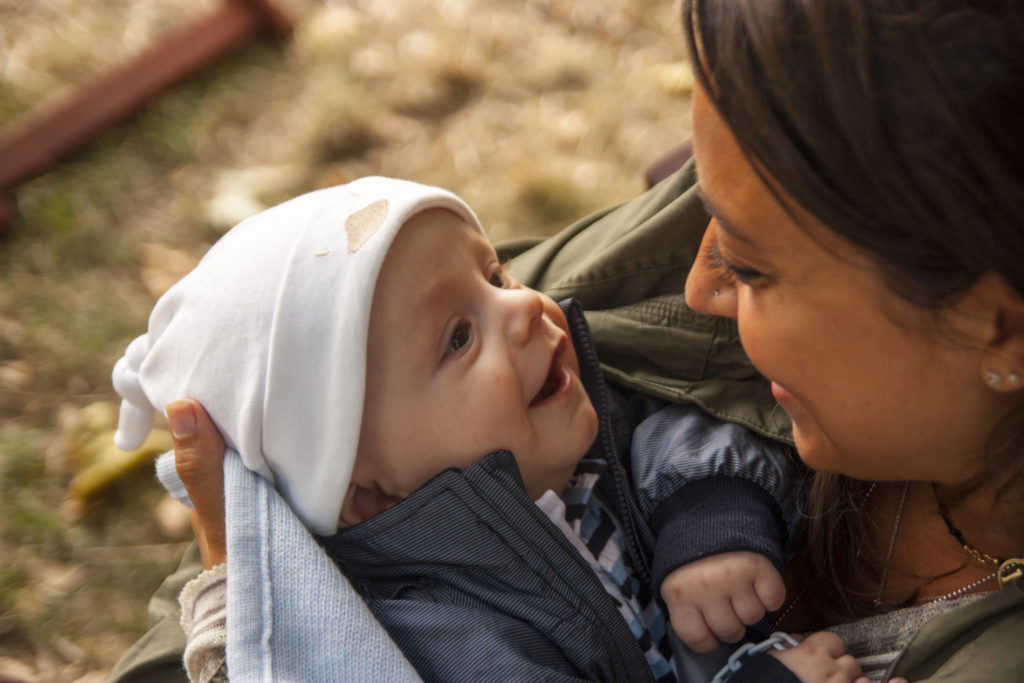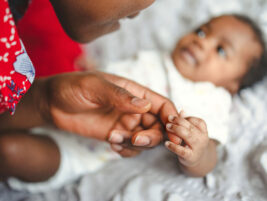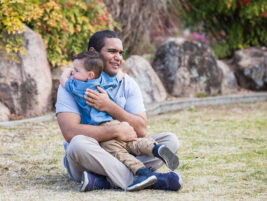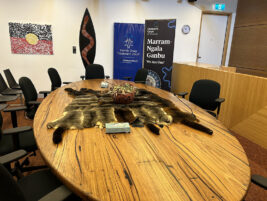Through both its intimate and universal dimensions, the perinatal period marks a key moment in human development. This stage of life has forever demanded that the community give special consideration to mothers to be and their families. The roles of those who provide accompaniment and support and the means and methods that they use have evolved relentlessly as a function of sociocultural context and accumulated knowledge. Today, these roles, means and methods take on a wide variety of forms, as evidenced in the perinatal care policies around the world, including the one adopted by the Government of Quebec (Politique de périnatalité 2008-2018 -Un projet porteur de vie).
On November 25 and 26, 2010, the Birthing the World conference proposed a novel format at once wide-reaching, interdisciplinary and grounded in the major issues of reflection and scientific research conducted here and elsewhere. This event was the result of long months of hard work by the Association pour la santé publique du Québec (Quebec Public Health Association) in conjunction with its principal partners, namely, the Quebec Association of Perinatal Care Family Physicians (AOPQ), the Society of Obstetricians and Gynaecologists of Canada, the Regroupement Les Sagesfemmes du Québec (Quebec Midwives Association), and numerous other partner-collaborators from a host of different sectors, including public health, perinatal and early-childhood mental health, community organizations, nursing care, research, the public service, and professional associations.
The goals of the conference were to showcase the latest data and initiatives in the field of perinatal care, to examine the physical and affective dimensions of the interval running from the prenatal period through the first two years of a child’s life and, finally, to strengthen and enhance the ability of participants to accompany and support mothers to be and their families in normal situations as well as in others that present particular challenges. Within the framework of the continuum that is the perinatal period, the conference aimed also to question, provoke, mobilize and influence Quebec society in the aim ultimately of bolstering its collective selfconfidence in its ability to bear, deliver and nourish its children from both a physical and mental standpoint.
Three major themes ran through the exchanges at the conference: childbirth, breastfeeding and becoming parents. These were examined and discussed using an interdisciplinary approach, which was conceived not as an end in and of itself but rather as a privileged means of changing and harmonizing the practices of all parties concerned by birth and early childhood. The plenary conferences and the key symposia placed the emphasis on the importance of the emotional aspect of perinatal care, the examination of specific practices regarding childbirth and parenthood support and accompaniment, including the MOREOB program1 , protecting the physiological process of birth, issues regarding the organization of care in the aim of optimizing its continuity and the safety of families, strategies to promote breastfeeding, issues regarding the leveraging of information conveyed to new parents, and the attitudes of different professional groups towards current perinatal care practices.
Birthing the World was made possible thanks to the complicity of scientific and advisory committees composed of practitioners, researchers, managers and clinicians who share the same ideal regarding the well-being of mothers, parents and babies. All the members of these committees stand out in their field of practice for their openness to others and their ability to mobilize the people around them. Over the more than two years that they met, the dynamic within the committees evolved in such a manner as to allow their work to shift from a multidisciplinary effort to an interdisciplinary one. The remarkable dedication displayed by the committee members and their promotion of the event to their respective colleagues allowed creating a similar dynamic within their networks, multiplied by hundreds of participants. The fruits of their labour benefitted from the vitality injected in the project by the executive members of the Quebec Public Health Association, with the support of the event’s principal financial partners, namely, the Quebec Ministry of Health and Social Services and the Public Health Agency of Canada.
Birthing the World brought together 722 participants from all sectors connected to perinatal care, from across Quebec, Canada and elsewhere. These included researchers, physicians, nurses, midwives, doulas, professors, social workers, psychologists, and lactation consultants. In other words, converging on one and the same place were people who, while working in the same field, seldom have the chance to share their experiences and interrogations or to report the results of their research and the effects of their practices.
Birthing the World consisted of 148 speakers, 6 plenary conferences, 30 symposia, 25 workshops, 50 oral presentations, 17 poster presentations and an expertise fair spotlighting 20 community organizations from across Canada. All abstracts were evaluated by three scientific sub-committees: the sub-committee on childbirth chaired by Céline Lemay of the Quebec Midwives Association and Dr. Maxine Dumas-Pilon of the AOPQ; the sub-committee on breastfeeding chaired by Carole Dobrich of INFACT-Québec²; and the sub-committee on becoming parents chaired by Chantale Audet of the Quebec Public Health Institute. The book of abstracts evaluated by the Scientific Committee is available at www.birthingtheworld.com.
In the opinion of approximately 50% of the participants who filled out the online evaluation after the event, this conference stood apart for its originality and contributed to pool our respective viewpoints and expertise regarding the perinatal period and the first two years of life. Indeed, this gathering constituted a unique opportunity to learn about, discuss and debate current strategies for promoting health, providing accompaniment and support, and carrying out clinical interventions in the field of perinatal care and services. The exchanges and collaborations generated by the event fostered the sharing of knowledge that all too often remains compartmentalized, in addition to advancing the cause of greater integration and continuity of services in perinatal care. Above all, these exchanges contributed to further the process of reflection and to take concrete actions concerning the humanization of care for women, babies and families.
The very positive response to Birthing the World reflects the fact that our capacity to talk to one another has reached a new level of maturity and points to our vital need for collaboration, beginning with our different accompaniment and practice settings. This highpoint for the Quebec perinatal care community paves the way for us to conceive and carry out actions in concert with one another. These include establishing institutional settings for interdisciplinary exchange, offering more targeted training, supporting practice communities through the dissemination of written documents, and resuming our advocacy role on behalf of women and young families, particularly the most vulnerable among them. In the end, this conference leaves in its wake an energized network better inclined to work cooperatively for the better being of families during the earliest years of life.
Authors
St-André, Martin,
Perinatal and infant psychiatrist,
Université de Montréal; Chair,
martin.st-andreumontreal.ca,
Chouinard, Catherine,
Project Manager for Perinatal Care Issues,
Association pour la santé publique du Québec,
(Quebec Public Health Association),
Birthing The World Scientific Coordinator,
cchouinard@aspq.org








